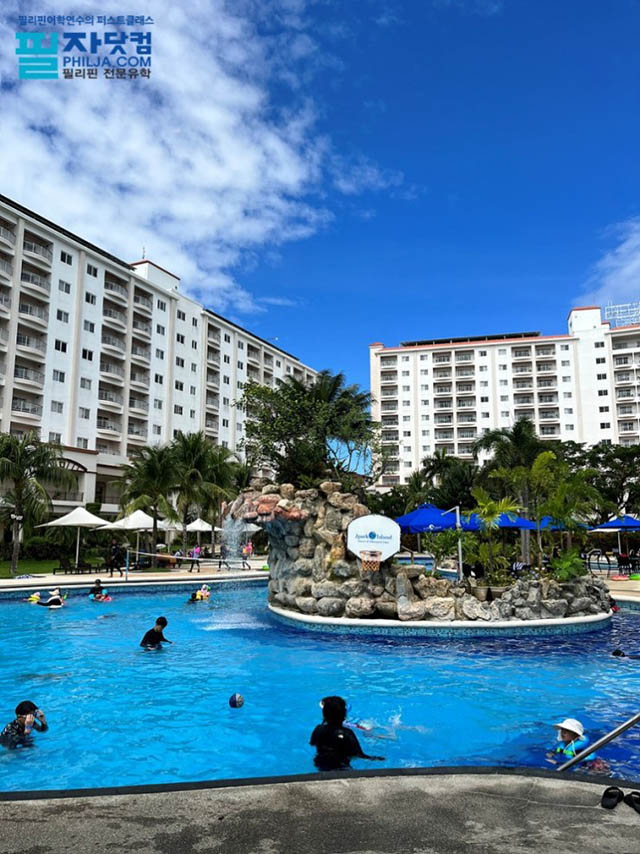
-
МјРЇСІИёСЖШИМі
-
 gabi АЁКё(night РњГс) gusto БИНКЖЧ(want ПјЧЯДй) buk
gabi АЁКё(night РњГс) gusto БИНКЖЧ(want ПјЧЯДй) buk 9,148
9,148 -
 ЕћАЅ
ЕћАЅ 9,120
9,120 -
 Some phrases in Cebuano using pronouns translated into
Some phrases in Cebuano using pronouns translated into 9,090
9,090 -
 How long in Tagalog8,946
How long in Tagalog8,946 -
 School Supplies in Tagalog8,705
School Supplies in Tagalog8,705 -
 Poem : How do I love thee? ( Gaano kita Iniibig?)8,693
Poem : How do I love thee? ( Gaano kita Iniibig?)8,693 -
 Paru-Parung Bukid song8,443
Paru-Parung Bukid song8,443 -
 KAHIT SAAN- WHEREVER8,343
KAHIT SAAN- WHEREVER8,343 -
 Names of Different kind of Clothing translated from Ceb8,091
Names of Different kind of Clothing translated from Ceb8,091 -
 \"Ako ay Plipino\" Song in translated in English versi8,039
\"Ako ay Plipino\" Song in translated in English versi8,039
ОШГчЧЯММПф...('_')/
ЧЪРк ММКЮЖѓПюСіРЧ СіХДРЧ АЛИХДЯРњРдДЯДй-
ЙАЗа ПЕОюИІ РЇЧи ЧЪИЎЧЩРЛ ЙцЙЎЧЯСіИИ
ИЗЛѓ ЕЕТјЧЯИщ БзЕщРЬ ПЕОюИИ ОВДТАЧ ОЦДЯЖѓДТАЩ ОЫАд ЕЫДЯДй~
ЧіСі ФЃБИЖѓЕЕ ЛчБЭИщ ЧбИЖЕ№ РЮЛчСЄЕЕДТ ЧЪПфЧЯАкСв~
ЙАЗа ЦЉХЭЕщПЁАд АЃДмЧб РЮЛчСЄЕЕДТ ШАЗТМвАЁ ЕЩМі РжНРДЯДй-
ЧдВВ ЙшПіКМБюПф?
|
ЂНОЦРЬРк МБЛ§ДдРЬ ОЫЗССжДТ ЕћАЅЗЮБз-ММКЮОЦГы~~~ЂН
In visiting another country it is very important to know the language use in that particular country. ДйИЅ ГЊЖѓИІ ЙцЙЎЧвЖЇ Бз ГЊЖѓПЁМ ЛчПыЧЯДТ О№ОюИІ ОЦДТАЭРК ЛѓДчШї СпПфЧеДЯДй. Specially in communicating to the local people in that area. ЦЏКАШї Бз СіПЊРЧ ЧіСіРЮЕщАњРЧ ДыШПЁМДТ ИЛРЬСв~
RIDING A TAXI ХУНУХЛЖЇ
Some taxi driver's don't know how to speak english so this would be helpful АЁВћ ХУМі БтЛчДдРЬ ПЕОюИІ ИЛЧЯСі ИјЧЯДТ АцПьАЁ РжРИЙЧЗЮ РЏПыЧвАХПЁПф
While inside the taxi,the taxi driver will ask you: ХУНУ РЬПыНУ ХУНУ БтЛчДдРЬ ДйРНАњ ААРЬ СњЙЎЧв АЬДЯДй:
WHERE ARE WE GOING?-ASA TA PADULONG?-SAAN TAYO PUPUNTA? ОюЕ№ЗЮ АЁММПф?-ОЦЛч ХИ КќЕбЗе?-Нб ЕћПф ЛбЛгХИ?
The word asa means where. 'ОЦЛч' ЖцРК ОюЕ№ РдДЯДй Ta is a first person plural in cebuano and it means we in english. 'ХИ' ДТ ММКЮОЦГыПЁМ РЯРЮФЊ КЙМіРдДЯДй РЬ ЖцРК 'ПьИЎ' РдДЯДй Padulong means going. КќЕбЗе РК АЁАэРжДй РдДЯДй For tagalog it's saan tayo pupunta wherein saan means where ,tayo means we and pupunta means going. 'Нб' РК ОюЕ№, 'ХИПф' ДТ ПьИЎ, 'ЛбЛгХИ' ДТ АЁДй РдДЯДй
So to answer that you can say ОЦЗЁДТ РЇРЧ СњЙЎПЁ ДыЧб ДыДфРдДЯДй
WE ARE GOING TO (PLACE NAME)-ADTO TA SA (PLACE NAME)-DOON TAYO SA (PLACE NAME) ПьИЎДТ (ОюЕ№ЗЮ) АЉДЯДй-ОЦЕхХф ХИ Лч (ОюЕ№)-Еа ХИПф Лч(ОюЕ№)
Adto means go, ta means we and sa means to. 'ОЦЕхХф' ЖцРК АЁДй, 'ХИ' ЖцРК ПьИЎ БзИЎАэ 'Лч' ДТ ~ЗЮ РдДЯДй In tagalog,doon means go there, tayo means we and sa means to. ЕћАЅЗЮБзЗЮДТ 'Еа' ЖцРК АЁДй. 'ХИПф' ДТ ПьИЎ БзИЎАэ 'Лч' ДТ ~ЗЮ РдДЯДй
JUST STOP ME HERE-DIRI LANG KO IHUNONG-PARA LANG PO DYAN СіБн ПЉБт ММПіСжММПф-Е№ИЎ Жћ Фк РЬШЃГѓ-ЦФЖѓ Жћ Цї Е№ОШ
Diri means here, lang means just,ko means me and ihunong means stop Е№ИЎ ДТ ПЉБт, Жћ РК БзГЩ/ЙйЗЮ, Фк ДТ ГЊИІ БзИЎАэ РЬШЃГѓ РК СЄСі/ИиУу РдДЯДй and in tagalog its para lang po dyan...Para means stop, lang means just and dyan means there. БзИЎАэ ЕћАЅЗЮБзЗЮДТ ЦФЖѓ Жћ Цї РЬОШ РдДЯДй ЦФЖѓ ДТ СЄСі, Жћ РК БзГЩ/ЙйЗЮ БзИЎАэ Е№ОШ РК РњБт РдДЯДй
HOW MUCH IS THE FARE?-PILA AKONG PLETEHAN?-MAGKANO ANG PAMASAHI? ПфБнРЬ ОѓИЖРдДЯБю?-ЧЪЖѓ ОЦФс ЧУЗЙХзЧб?-ИЖБзФЋГы Ог ЦФИЖЛчШї?
Pila means how much, akong means I and pletehan means pay for the fare. ЧЧЖѓ ДТ ОѓИЖ, ОЦФс РК ГЊ БзИЎАэ ЧСЗЙХзЧб ЖцРК ПфБнРЛ ГЛДй РдДЯДй In Tagalog, magkano means how much,ang means the and pamasahi means fare. ЕћАЅЗЮБзЗЮДТ, ИЖБзФЋГы ЖцРК ОѓИЖ, Ог ЖцРК Бз БзИЎАэ ЦФЖѓЛчШї ЖцРК ПфБнРдДЯДй
|
- ЁЄfYGbJbhcBF

- ЁЄfYGbJbhcBF

- ЁЄfYGbJbhcBF

- ЁЄfYGbJbhcBF

- ЁЄfYGbJbhcBF

- ЁЄfYGbJbhcBF

- ЁЄfYGbJbhcBF

- ЁЄfYGbJbhcBF

- ЁЄfYGbJbhcBF

- ЁЄfYGbJbhcBF

- ЁЄfYGbJbhcBF

- ЁЄfYGbJbhcBF

- ЁЄfYGbJbhcBF

- ЁЄfYGbJbhcBF

- ЁЄfYGbJbhcBF




- ЁЄKEVfKqeZoG

- ЁЄKEVfKqeZoG

- ЁЄKEVfKqeZoG

- ЁЄKEVfKqeZoG

- ЁЄKEVfKqeZoG

- ЁЄKEVfKqeZoG

- ЁЄKEVfKqeZoG

- ЁЄKEVfKqeZoG

- ЁЄKEVfKqeZoG

- ЁЄKEVfKqeZoG

- ЁЄKEVfKqeZoG

- ЁЄKEVfKqeZoG

- ЁЄKEVfKqeZoG

- ЁЄKEVfKqeZoG

- ЁЄKEVfKqeZoG




- ЁЄqpvwYmzPrC

- ЁЄqpvwYmzPrC

- ЁЄqpvwYmzPrC

- ЁЄqpvwYmzPrC

- ЁЄqpvwYmzPrC

- ЁЄqpvwYmzPrC

- ЁЄqpvwYmzPrC

- ЁЄqpvwYmzPrC

- ЁЄqpvwYmzPrC\'\"\\(

- ЁЄqpvwYmzPrCщ\'\"\\(

- ЁЄqpvwYmzPrC

- ЁЄqpvwYmzPrC

- ЁЄqpvwYmzPrC

- ЁЄqpvwYmzPrC

- ЁЄqpvwYmzPrC














 ЧЪРкДхФФ ОпАЃЛѓДу ПРЧТ
ЧЪРкДхФФ ОпАЃЛѓДу ПРЧТ 11ГтПЌМг МвКёРкИИСЗ 1РЇ
11ГтПЌМг МвКёРкИИСЗ 1РЇ
 ГЛАд ИТДТ ОюЧаПј УЃБт
ГЛАд ИТДТ ОюЧаПј УЃБт
 ИЎОѓ ЧаБГ ЙцЙЎБт
ИЎОѓ ЧаБГ ЙцЙЎБт
 СжИЛПЁ ГЛАЁ ОЕ КёПыРК?
СжИЛПЁ ГЛАЁ ОЕ КёПыРК? УжАэАЁМККё РЬКЅЦЎ СёБтБт
УжАэАЁМККё РЬКЅЦЎ СёБтБт
 ЧіСіПЁМЕЕ ЧЪРкДхФФ!
ЧіСіПЁМЕЕ ЧЪРкДхФФ! ЧіСіПЁМ АЁДЩЧб
ЧіСіПЁМ АЁДЩЧб









 ЧЪРк ЦЏБо Ч§ХУ! ФСНУОюСі МКёНК
ЧЪРк ЦЏБо Ч§ХУ! ФСНУОюСі МКёНК



 АЁСЗПЌМіЗЮ ДйЧдАд ОзЦМКёЦМ
АЁСЗПЌМіЗЮ ДйЧдАд ОзЦМКёЦМ





























